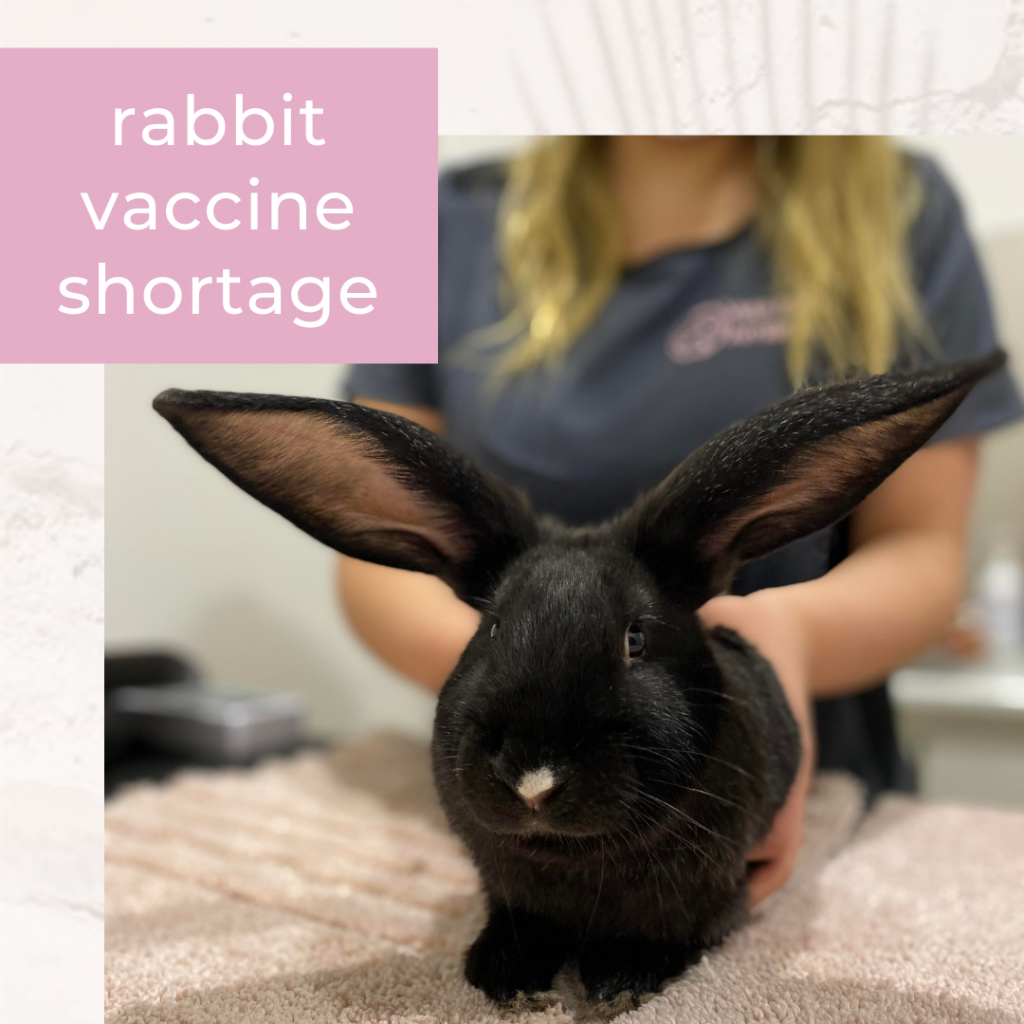
Vets at Amaroo has been advised that the Cylap Rabbit Vaccine is out of stock Australia wide, with more supply expected to arrive in early 2022. In the meantime, we would like to pass on some information that could help to keep your rabbit safe.
What is Rabbit Calicivirus?
Rabbit Calicivirus (also known as rabbit haemorrhagic disease or RHD) is caused by the rabbit haemorrhagic disease virus (RHDV), a type of calicivirus which is fatal in non-immune rabbits. There are currently three pathogenic strains of this virus in wild rabbit populations in Australia, vaccination offers protection from some but not all of the strains.
How is Rabbit Haemorrhagic Disease Virus spread?
- Contact with infected rabbits (surviving rabbits can continue to shed RHDV for at least a month after they recover)
- Fomites (objects) including contaminated food
- Insects (flies, fleas and mosquitos)
- Birds and mammals that eat infected rabbit carcasses may excrete infectious viruses in faeces
How can I reduce the risk of RHDV infection?
RHDV can remain in the environment for an extended period and can be transmitted on objects and via some insects. The following precautions can reduce the risk of infection:
- Keep your pet rabbit indoors
- Rabbit-proof your backyard to prevent access by wild rabbits
- Regularly decontaminate equipment and materials including cages, hutches, bowls etc, with either 10% bleach or 10% sodium hydroxide
- Do not pick food (such as grass or vegetables) for your rabbit from outside of your yard
- Limit contact between and handling of unfamiliar pet rabbits
- Decontaminate hands, shoes and clothing after handling other than your own rabbits
- Control fleas
- Control insects (especially flies) as much as possible both indoors and outdoors
- Remove uneaten food on a daily basis
